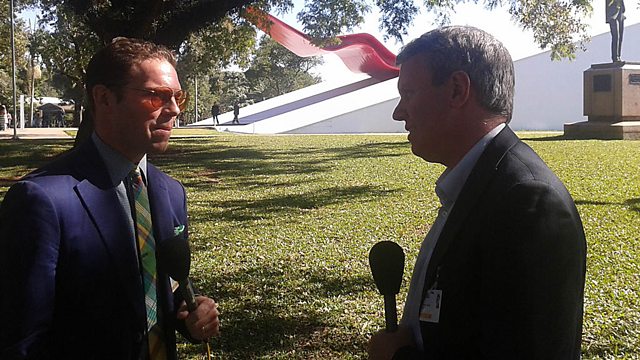A Route 66 of the Future: New Cities Summit
Sao Paulo, with a population of 11 million, is renowned for traffic jams that can be over 200 km long. Can technology help to break the gridlock?
More than one million new people move to cities each week. It is an accelerating trend that has been going on for decades and has led to the creation of megacities. How do you move people around in such overcrowded places with creaking, overstrained transport systems? In part three of our special series, A Route 66 of the Future, Click travels to Sao Paulo in Brazil, at the start of an international New Cities Summit to hear some of the solutions proposed by technologists, architects and planners.
Gary Duffy talks to a range of specialists, including John Rossant, the founder of New Cities Foundation and the architect Daniel Libeskind. There is also a report on the new monorail planned for the city, which will reduce journey times by more than a half; and the ground-breaking Apps to improve city life that were finalists at this year's AppMyCity competition. Sao Paulo, a mega city with a population of 11 million, is known for its innovation. But it is also renowned for traffic jams that can be over 200 kilometres long. Can technology help to break the gridlock?
(Image: Gary Duffy (right) with Greg Lindsay)
Last on
More episodes
Previous
The Open University

New Cities Summit

New Cities Foundation

Broadcasts
- Tue 11 Jun 2013 18:32GMT大象传媒 World Service Online
- Wed 12 Jun 2013 01:32GMT大象传媒 World Service Online
- Wed 12 Jun 2013 08:32GMT大象传媒 World Service Online
- Sun 16 Jun 2013 07:32GMT大象传媒 World Service Online
Podcast
-
![]()
Digital Planet
Technological and digital news from around the world.


